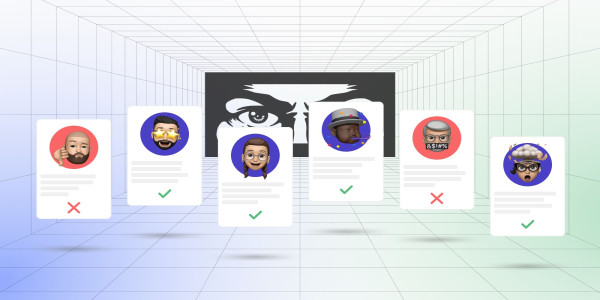
The Price of Convenience: Why We're Trading Privacy for Free Services Introduction
We live in an era of digital revolution, where technology permeates every aspect of our lives. Smartphones, social media, and online services have become indispensable parts of our daily routines. However, behind the convenience and accessibility lies a significant threat - the loss of privacy.
Data Collection: The New Black Gold of the 21st Century
Corporations and governments are amassing vast amounts of data about us, from our search history to our location and financial transactions. This information is used for targeted advertising, product development, and even manipulation of public opinion.
KYC and Cryptocurrencies: A Compromise or a Betrayal of Ideals?Initially positioned as a means of anonymous payments, cryptocurrencies have seen a shift towards mandatory KYC (Know Your Customer) requirements on most exchanges. This contradicts the core principle of privacy that cryptocurrencies were designed to provide. Those who value their privacy should avoid centralized exchanges that require KYC (Know Your Customer) and instead use decentralized exchanges or those that do not have mandatory KYC requirements
Data Breaches: An Inevitable Evil?Frequent exchange hacks and data breaches have become the norm. Millions of users lose their savings and personal information, which can be used for fraud, blackmail, or even physical harm.
Consequences of Privacy Loss
The loss of privacy carries significant risks:
Financial Loss: Leaked banking information can lead to identity theft and financial ruin.Reputational Damage: The disclosure of personal information can tarnish a person's reputation.Blackmail and Extortion: Criminals can use stolen data to blackmail or extort individuals.Political Persecution: In some countries, data collection is used for political repression.
How to Protect Your Privacy
Minimize Your Digital Footprint: Use VPNs, private search engines, and anonymous messaging apps.Be Cautious with Social Media: Limit access to your information and avoid sharing overly personal details.Enable Two-Factor Authentication: This significantly enhances the security of your accounts.Beware of Phishing Attacks: Avoid clicking on suspicious links and entering your credentials on unverified websites.Read Privacy Policies: Carefully review the privacy policies of services before signing up to understand what data is collected and how it is used.Prioritize Privacy-Focused Services: Choose decentralized exchanges, privacy-centric browsers (like Tor), and other services that do not require KYC.Conclusion
Privacy is a fundamental human right. By relinquishing our data, we lose a piece of our freedom and expose ourselves to risks. It is imperative that we recognize the value of our privacy and take steps to protect it.
Call to Action
- Spread Awareness: Share this article with your friends and family.- Support Privacy-Focused Projects: Invest in technologies that promote anonymity.- Demand Transparency: Ask companies how they collect and use your data.- Vote for Privacy-Protecting Politicians: Support candidates who prioritize privacy rights.
Only by working together can we regain control of our digital lives.
Share This Post
We live in an era of digital revolution, where technology permeates every aspect of our lives. Smartphones, social media, and online services have become indispensable parts of our daily routines. However, behind the convenience and accessibility lies a significant threat - the loss of privacy.
Data Collection: The New Black Gold of the 21st Century
Corporations and governments are amassing vast amounts of data about us, from our search history to our location and financial transactions. This information is used for targeted advertising, product development, and even manipulation of public opinion.
KYC and Cryptocurrencies: A Compromise or a Betrayal of Ideals?
Initially positioned as a means of anonymous payments, cryptocurrencies have seen a shift towards mandatory KYC (Know Your Customer) requirements on most exchanges. This contradicts the core principle of privacy that cryptocurrencies were designed to provide. Those who value their privacy should avoid centralized exchanges that require KYC (Know Your Customer) and instead use decentralized exchanges or those that do not have mandatory KYC requirements
Data Breaches: An Inevitable Evil?
Frequent exchange hacks and data breaches have become the norm. Millions of users lose their savings and personal information, which can be used for fraud, blackmail, or even physical harm.
Consequences of Privacy Loss
The loss of privacy carries significant risks:
Financial Loss: Leaked banking information can lead to identity theft and financial ruin.
Reputational Damage: The disclosure of personal information can tarnish a person's reputation.
Blackmail and Extortion: Criminals can use stolen data to blackmail or extort individuals.
Political Persecution: In some countries, data collection is used for political repression.
How to Protect Your Privacy
Minimize Your Digital Footprint: Use VPNs, private search engines, and anonymous messaging apps.
Be Cautious with Social Media: Limit access to your information and avoid sharing overly personal details.
Enable Two-Factor Authentication: This significantly enhances the security of your accounts.
Beware of Phishing Attacks: Avoid clicking on suspicious links and entering your credentials on unverified websites.
Read Privacy Policies: Carefully review the privacy policies of services before signing up to understand what data is collected and how it is used.
Prioritize Privacy-Focused Services: Choose decentralized exchanges, privacy-centric browsers (like Tor), and other services that do not require KYC.
Conclusion
Privacy is a fundamental human right. By relinquishing our data, we lose a piece of our freedom and expose ourselves to risks. It is imperative that we recognize the value of our privacy and take steps to protect it.
Call to Action
- Spread Awareness: Share this article with your friends and family.
- Support Privacy-Focused Projects: Invest in technologies that promote anonymity.
- Demand Transparency: Ask companies how they collect and use your data.
- Vote for Privacy-Protecting Politicians: Support candidates who prioritize privacy rights.
Only by working together can we regain control of our digital lives.